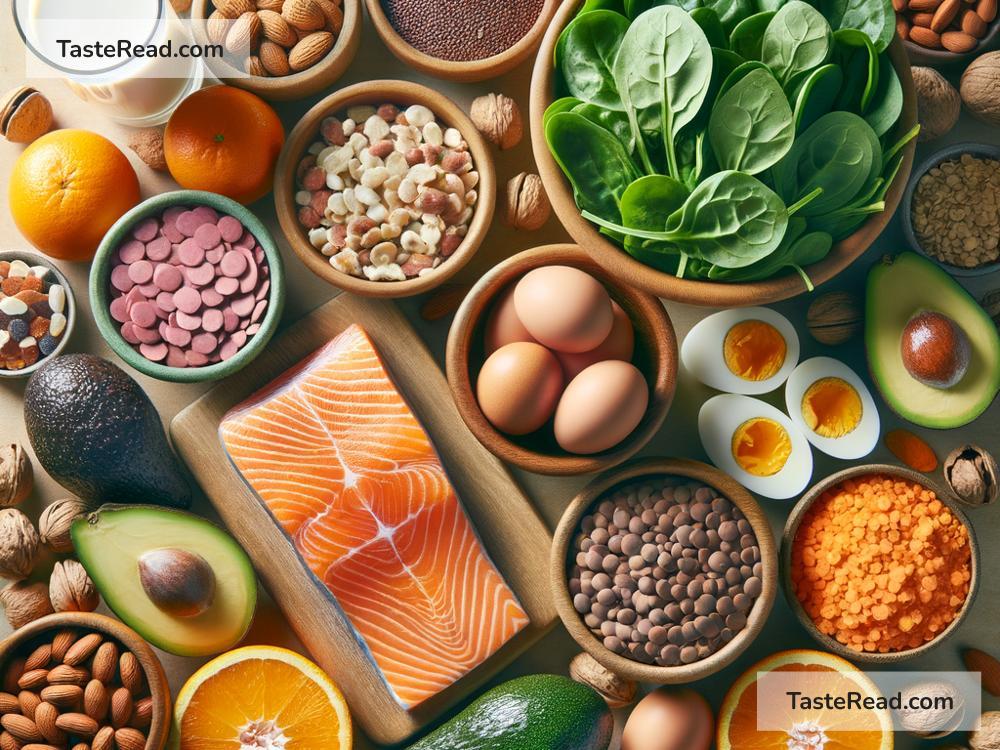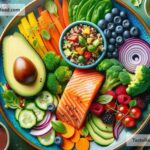Foods to Reduce Nutrient Deficiencies: Simple Steps for a Healthier You
Eating healthy isn’t complicated. Your body needs a variety of nutrients each day to function properly, but sometimes we don’t get enough of what we need. Nutrient deficiencies can make you feel tired, weak, or even sick. Luckily, adding the right foods to your diet can help you stay healthy. Let’s explore simple foods that can help reduce common nutrient deficiencies and get your body back on track!
Iron: Feeling Tired or Out of Energy?
Iron helps your body make red blood cells that carry oxygen to all parts of your body. Without enough iron, you might feel tired, weak, or have difficulty concentrating. Iron deficiency, also called anemia, is very common, especially in women and children.
Foods Rich in Iron:
- Spinach and kale: These leafy greens are packed with iron, and they’re easy to add to soups, salads, or smoothies.
- Beans and lentils: Cheap and versatile, beans and lentils are a great source of plant-based iron.
- Red meat: Beef and lamb contain a type of iron that’s easy for the body to absorb.
- Nuts and seeds: Try adding almonds, cashews, or pumpkin seeds to your diet for a quick iron boost.
To help your body absorb iron better, eat these foods with something rich in Vitamin C—like oranges, tomatoes, or bell peppers. A spinach salad with lemon dressing, for example, is a great combination.
Vitamin D: Stay Strong and Fight Fatigue
Vitamin D is essential for keeping your bones strong because it helps your body absorb calcium. A lack of Vitamin D can make you feel tired, cause bone pain, and increase your risk of fractures.
Foods Rich in Vitamin D:
- Fatty fish: Salmon, mackerel, and sardines are loaded with Vitamin D.
- Egg yolks: Don’t skip the yolk—it contains Vitamin D and other nutrients.
- Fortified foods: Many cereals, milk, and plant-based milk alternatives add Vitamin D, so check the labels.
Sunlight is another great source of Vitamin D. Try spending 10–15 minutes outside in the sun each day.
Calcium: Build Strong Bones and Teeth
Calcium works with Vitamin D to keep your bones strong and your muscles functioning well. If you don’t get enough calcium, you may face weak bones, muscle cramps, or an increased risk of osteoporosis as you age.
Foods Rich in Calcium:
- Dairy products: Milk, yogurt, and cheese are calcium champions.
- Leafy greens: Kale, spinach, and bok choy are excellent plant-based sources of calcium.
- Fortified foods: Many orange juices and plant-based milks are enriched with calcium.
- Almonds: Snack on a handful of almonds for an easy calcium boost.
Vitamin B12: Boost Energy and Brain Health
Vitamin B12 is crucial for maintaining healthy nerve and blood cells and supporting energy levels. A deficiency can lead to fatigue, memory problems, and even mood changes.
Foods Rich in Vitamin B12:
- Animal products: Meat, fish, eggs, and dairy are the main sources of B12.
- Fortified cereals: If you’re vegan or vegetarian, look for B12-enriched cereals.
- Nutritional yeast: This is a favorite among plant-based eaters and can be added to soups or sprinkled onto popcorn for a cheesy flavor.
If you follow a vegan diet, you may need a B12 supplement since most sources of this vitamin come from animal products.
Magnesium: Stay Calm and Beat Muscle Cramps
Magnesium helps your body relax, supports muscle function, and improves sleep. A deficiency can cause muscle cramps, irritability, or trouble sleeping.
Foods Rich in Magnesium:
- Dark chocolate: A square or two of dark chocolate isn’t just a treat, it’s also a sneaky magnesium source.
- Avocados: Add avocado to salads or toast to benefit from its magnesium content.
- Whole grains: Brown rice, oats, and whole wheat bread are rich in magnesium.
- Nuts and seeds: Like almonds, sunflower seeds, and chia seeds.
Omega-3 Fatty Acids: Support Your Brain and Heart
Omega-3 fatty acids are crucial for brain and heart health. A deficiency can cause dry skin, low energy, or even memory problems.
Foods Rich in Omega-3:
- Fatty fish: Salmon, trout, and sardines are high in Omega-3s.
- Flaxseeds and chia seeds: Easy to sprinkle on oatmeal or yogurt.
- Walnuts: Add to salads or snack on a handful for healthy fats.
- Plant-based oils: Olive oil and flaxseed oil are good vegetarian options.
Potassium: Balance Fluids and Support Muscles
Potassium helps balance fluid levels and keeps your heart and muscles working properly. A deficiency can lead to muscle weakness or irregular heartbeats.
Foods Rich in Potassium:
- Bananas: A classic snack loaded with potassium.
- Potatoes: Sweet or regular potatoes are a great source.
- Spinach: Another reason to love leafy greens!
- Beans: Black beans and kidney beans are full of potassium.
Take Small Steps Toward Health
Preventing nutrient deficiencies doesn’t mean following a complicated diet. Instead, focus on adding nutrient-rich foods to your meals. Eat a colorful variety of fruits, vegetables, lean proteins, whole grains, and healthy fats. Simple swaps—like choosing whole-grain bread or snacking on nuts—can make a big difference.
If you suspect you have a nutrient deficiency, talk to a doctor or nutritionist. Sometimes supplements may be helpful, but whole foods are always the best source of nutrients. Remember, healthy eating is a journey, not a race!
By making small, consistent changes to your diet, you’ll feel stronger, more energized, and ready to take on the day. Eat well, stay healthy, and enjoy the process!


